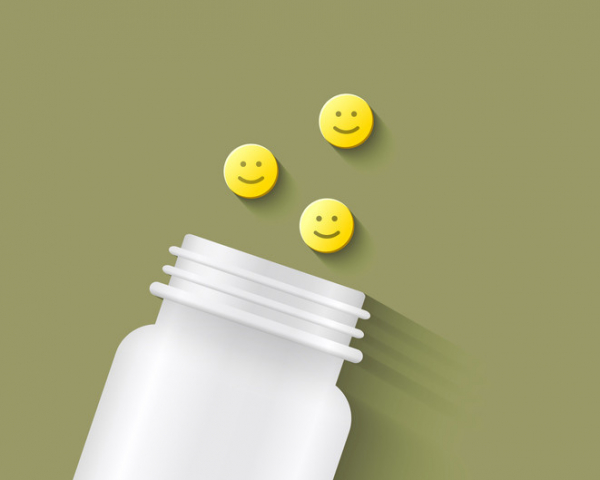
Drug side effects are common, and often quite troublesome.
Major side effects, such as severe or even life-threatening allergic reactions, require immediate treatment and discontinuation of the drug. More minor symptoms may be tolerable when weighed against drug benefits. And sometimes, these go away on their own as the body gets used to the drug.
But there’s another type of side effect you hear much less about: ones that are beneficial. Though uncommon, they’re worth keeping in mind when you’re starting a new medicine.
Aren’t all side effects bad?
The term side effect is usually assumed to be a bad thing. And that’s typically true. But that leaves out the “good” side effects. Relatively little is published on this, so it’s not clear how common they are. But four notable examples include:
- Minoxidil (Rogaine, Gainextra, other brands). Developed in the 1970s for high blood pressure, this drug also increased hair growth in study subjects. What was initially considered a bothersome side effect eventually became its primary use: topical forms of this drug are commonly used to treat hair loss.
- Diphenhydramine (Benadryl or generic versions). This common treatment for allergic conditions has the side effect of drowsiness. For adults with allergy issues and trouble sleeping, the sedative effect can be helpful. Regular, long-term use of diphenhydramine is not recommended, as it may increase the risk of dementia.
- Sildenafil (Viagra or generic versions). Originally developed as a treatment for high blood pressure and angina, it didn’t take long for male users to realize the drug could trigger erections within 30 to 60 minutes. The makers of sildenafil recognized that under the right circumstances, this could be a highly beneficial side effect. In 1998 it was approved as a treatment for erectile dysfunction.
- Semaglutide (Ozempic, Wegovy, Rybelsus). This drug was developed to treat diabetes, but early users noticed reduced appetite and significant weight loss. Now, several formulations of these related drugs are approved for diabetes and/or weight loss.
In the best study I’ve read on the topic, researchers found more than 450 reports of serendipitous beneficial effects of various drugs since 1991. And that may be an underestimation, since report forms did not specifically ask for or label this type of side effect, according to the study authors.
Silver linings: Repurposing and repackaging drugs
While the discovery of helpful drugs can arise unexpectedly, drug developers are increasingly using a more intentional approach: using side effect profiles to look for new uses.
For example:
- A drug reported to cause reduced sweating as a side effect may be effective for hyperhidrosis, a condition marked by excessive sweating.
- Drugs reported to cause low blood pressure as a side effect might be effective treatments for high blood pressure (hypertension).
- New treatments for breast cancer may include older medicines that have a similar side effect profile as known anti-cancer drugs.
The availability of large side effect registries has made this method of identifying drugs for repurposing a more realistic option. So, even negative side effects can have a silver lining.
Bad side effects and the nocebo effect
While side effects can be positive, most are not. Medication side effects are a common reason people give for not taking prescribed drugs regularly. And adverse reactions to medicines prompt up to 8% of hospital admissions, according to one analysis.
To make matters worse, in some cases the expectation of side effects seems to make them more likely to occur. Called the nocebo effect, it increases the chances of experiencing a negative side effect and seems due, at least in part, to expectations. Contrast this with the placebo effect, where a sugar pill or another inactive treatment can lead to benefit.
The bottom line
Many people avoid taking medications because they fear possible side effects. That’s understandable. But not taking a medication can mean missing out on its benefits. And anticipation or expectation of side effects can increase the chances you’ll have them.
So, while it’s important to be aware of the most common side effects caused by the medicines you take, it’s also important not to overestimate your chances of experiencing them. And remember: there’s always a chance you’ll have a side effect you actually welcome.
About the Author

Robert H. Shmerling, MD, Senior Faculty Editor, Harvard Health Publishing; Editorial Advisory Board Member, Harvard Health Publishing
Dr. Robert H. Shmerling is the former clinical chief of the division of rheumatology at Beth Israel Deaconess Medical Center (BIDMC), and is a current member of the corresponding faculty in medicine at Harvard Medical School. … See Full Bio View all posts by Robert H. Shmerling, MD
